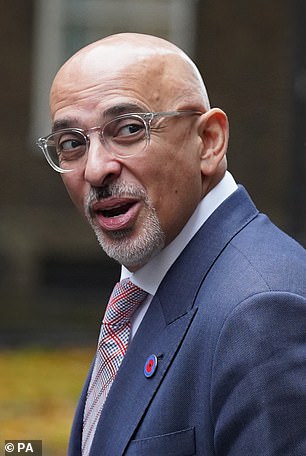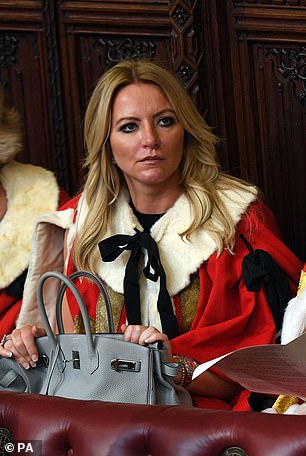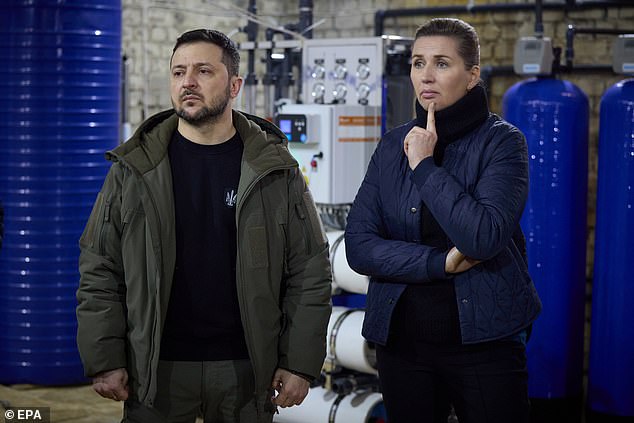UK scores its WORST ever score in global corruption report
>
The United Kingdom has been given its worst ever score in a global corruption report, which blamed public spending and ministerial misconduct.
The closely watched study by anti-graft organisation Transparency International said most of the world’s countries were failing to fight corruption, finding 95 percent have made little or no progress since 2017.
The report ranks countries on a scale from a ‘highly corrupt’ 0 to a ‘very clean’ 100. Denmark is seen as the least corrupt this year with 90 points, and Finland and New Zealand both follow closely at 87. Somalia ranked worst, with 12 points.
The United Kingdom, meanwhile, was given a score of 73 – placing it 18th on the list, alongside Belgium and Japan – its lowest score since the index began in 1995.
The closely watched study by anti-graft organisation Transparency International said most of the world’s countries were failing to fight corruption, finding 95 percent have made little or no progress since 2017. Pictured: A map showing how countries were ranked in the report
Transparency International’s 2022 Corruption Perceptions Index (CPI), which measures the perception of public sector corruption according to experts and businesspeople, found that governments hampered by corruption lack the capacity to protect the people, while public discontent is more likely to turn into violence.
‘Corruption has made our world a more dangerous place. As governments have collectively failed to make progress against it, they fuel the current rise in violence and conflict – and endanger people everywhere,’ said Delia Ferreira Rubio, the chairperson of Transparency International.
‘The only way out is for states to do the hard work, rooting out corruption at all levels to ensure governments work for all people, not just an elite few,’ she added.
Strong democratic institutions and regard for human rights made the top countries some of the most peaceful in the world, the report said.
However, the report also found that while western Europe remains the top-scoring region (a 66 average), some of its countries are showing worrying signs of decline.
The United Kingdom dropped five points to 73 – its lowest ever score – and fell from 11th place in 2021 (when it had 78 points) to 18th in 2022.
The report said a number of scandals from public spending to lobbying, as well as revelations of ministerial misconduct, have highlighted woeful inadequacies in the country’s political integrity systems.
Public trust in Britain’s politics is also worryingly low, it said.
A recent flash point has seen Prime Minister Rishi Sunak sack Conservative party chairman Nadhim Zahawi for breaching the ministerial code over his tax affairs.
Last year, former Prime Minister Boris Johnson resigned after a string of scandals resulted in over 50 ministers – including Sunak and Zahawi – quitting government.
This led to Liz Truss being chosen as the next Conservative Party leader and Prime Minister, who herself resigned just 49 days in to her tenure, before being replaced by Sunak in October. He now says he is taking steps to clean up the government.


Public trust in Britain’s politics is worryingly low, Transparency International’s report said. A recent flash point has seen Prime Minister Rishi Sunak sack Conservative party chairman Nadhim Zahawi (left) for breaching the ministerial code over his tax affairs. Meanwhile, Baroness Michelle Mone (right) is under investigation by the National Crime Agency as part of a fraud investigation into a Covid supplies company
In terms of public spending scandals, questions have been raised in particular over the government’s procurement of PPE during the Covid-19 pandemic.
It was reported last week that a further £6billion of taxpayer’s money was ‘wasted’ on Covid-era equipment in 2022, meaning Department of Health has lost £14.9billion on over-priced, faulty or unused PPE, tests and drugs since the pandemic began.
In one case, Baroness Michelle Mone is under investigation by the National Crime Agency as part of a fraud investigation into a Covid supplies company.
The report described the UK’s score as having ‘dropped significantly’ since 2021.
‘This sharp fall in the UK’s score is a powerful indictment of a recent decline in standards in government and controls over the use of taxpayer money. These findings should set alarm bells ringing in Downing Street,’ said Daniel Bruce, Chief Executive of Transparency International UK.
‘The underlying data clearly indicate that business executives and other experts are concerned about insufficient controls on the abuse of public office and increasingly view corruption and bribery as a real issue in Britain. This is the strongest signal yet that slipping standards are being noticed on the world stage’
Transparency International UK called on the British government to take three key steps to improve its CPI score for 2023.
These included supporting the Public Service (Integrity and Ethics) Bill – currently in the House of Lords – appointing an influential anti-corruption champion, and protecting the taxpayer’s money by disclosing all Covid-19 ‘VIP lane’ transactions and by introducing new rules around government emergency contracting powers.
‘The UK’s sharp fall paints a bleak, if not unexpected picture. The good news is that changes can be made to reverse the decline,’ Bruce continued.
‘Restoring the confidence of business to begin rebuilding Britain’s CPI score will not be easy – it demands comprehensive action as well as words in order to make good on the Prime Minister’s commitment to lead a government of integrity and accountability.’
Countries like Switzerland, at 82, and the Netherlands, which scored 80 points, are showing signs of decline amidst concerns over weak integrity and lobbying regulations – even though their scores remain high compared to other nations.
In eastern Europe, which with central Asia scored an average of 35, corruption is seen as remaining rampant as many countries reached historic lows.
Russia in particular was highlighted as a glaring example of corruption’s impact on peace and stability.

The report ranks countries on a scale from a ‘highly corrupt’ 0 to a ‘very clean’ 100. Denmark is seen as the least corrupt this year with 90 points. Ukraine scored 33 points, but the report noted the country was taking steps to fight corruption, as it also fights Russia’s invasion. Pictured: Ukraine’s President Volodymyr Zelensky (left) and Denmark’s Prime Minister Mette Frederiksen during a visit to Mykolaiv, southern Ukraine, 30 January 2023
The country’s invasion of Ukraine almost a year ago was a stark reminder of the threat that corruption and the absence of government accountability pose for global peace and security, the report said.
It added that kleptocrats in Russia, which is at 28 points, have amassed great fortunes by pledging loyalty to President Vladimir Putin in exchange for profitable government contracts and protection of their economic interests.
‘The absence of any checks on Putin’s power allowed him to pursue his geopolitical ambitions with impunity,’ the report concluded. ‘This attack destabilized the European continent, threatening democracy, and has killed tens of thousands.’
Before the invasion, Ukraine, which scored 33 points, had a low score but was undertaking important reforms and steadily improving.
Even after the outbreak of the war, the country has continued to prioritise anti-corruption reforms.
However, wars disrupt normal processes and exacerbate risks, the report pointed out, allowing corrupt actors to pocket funds meant for recovery. Earlier this month investigations exposed alleged war profiteering by several senior officials.
The index rated 180 countries and territories. Somalia was at the bottom with 12 points; South Sudan tied with Syria for second-to-last with 13.
The report also pointed out how after decades of conflict, South Sudan is in a major humanitarian crisis with more than half of the population facing acute food insecurity – and corruption is exacerbating the situation.
In Yemen, with a score of 16, where complaints of corruption helped spark civil war eight years ago, the report said that the state has collapsed, leaving two-thirds of the population without sufficient food in what has become one of the worst humanitarian crises in the world.
As a region, sub-Saharan Africa scored the worst average with 32. The Middle East and North Africa scored an average of 38, the Americas 43 and Asia Pacific 45.
Only eight countries improved last year, among them Ireland with 77 points, South Korea with 63, Armenia at 46, and Angola at 33.
Compiled since 1995, the index is calculated using 13 different data sources that provide perceptions of public sector corruption from businesspeople and country experts. Sources include the World Bank, the World Economic Forum and private risk and consulting companies.
